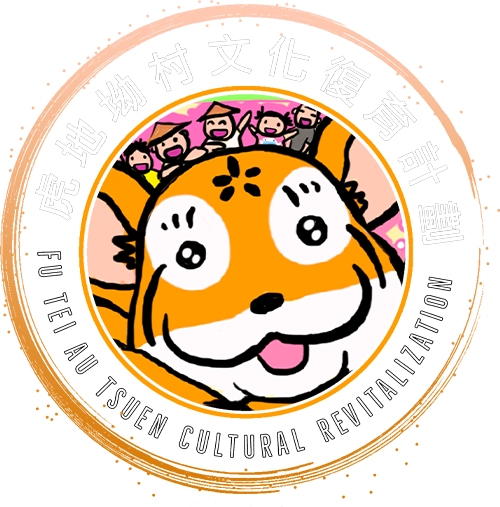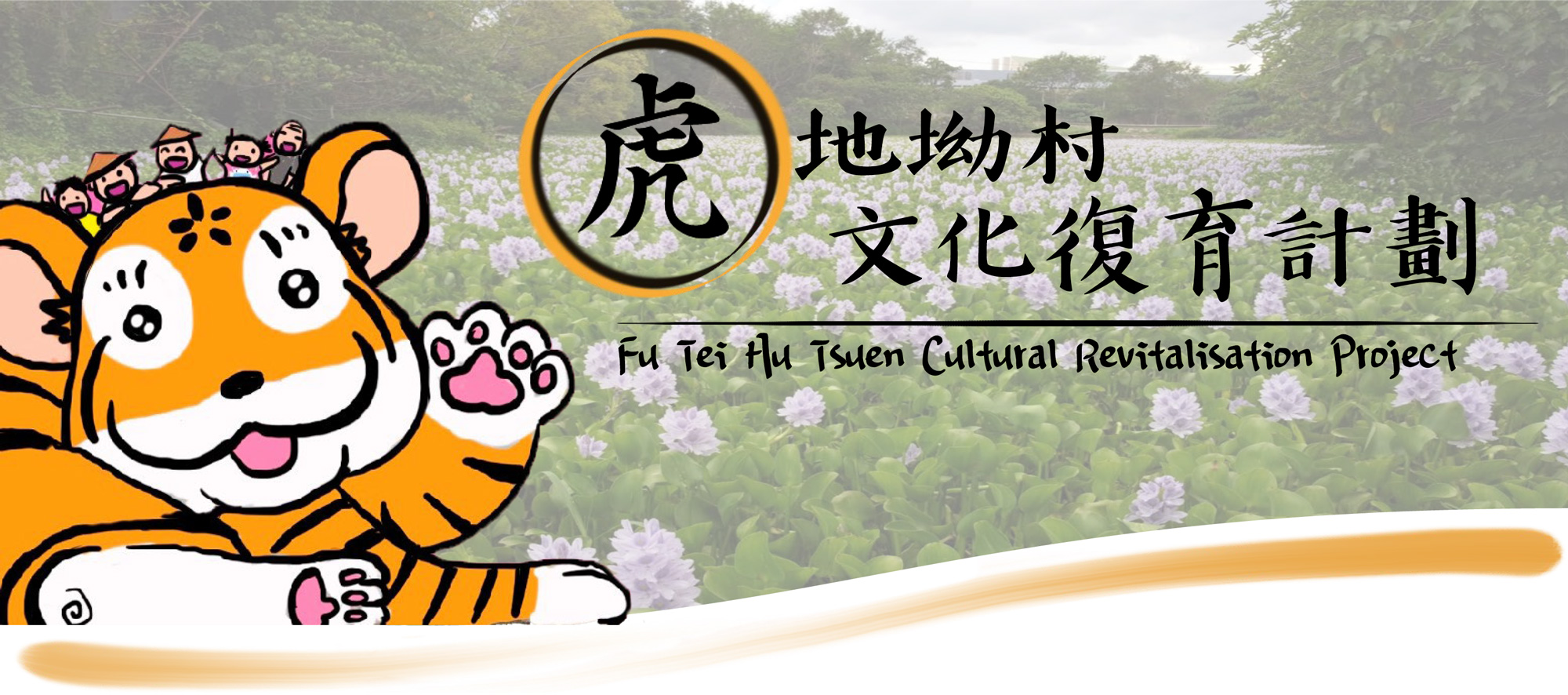Situated in the North District of the New Territories, Fu Tei Au Tsuen is a non-indigenous village that is home to characteristic landscape and architectures, in addition to its exuberant culture and ecosystem. Granted and funded by the Countryside Conservation Funding Scheme in 2020, Fu Tei Au Tsuen Cultural Revitalisation Project is a 2-year initiative that is put forward and operated by the Hong Kong Lutheran Social Services since March 2021. By means of collecting historical records and restoring cultural assets of the village, the project aims to promote rural village life such as Fu Tei Au Tsuen and the adaptation by non-indigenous communities throughout the historical development of Hong Kong.
In a collaboration work with the curating team from the School of Architecture at the Chinese University of Hong Kong, as well as researches and oral history interviews conducted over a half-year span, our site has successfully reincarnated into a lively exhibition named the “Fu Tei Au Village Storyhouse” and was officially opened for public visitation since October 29, 2021. Once a residence inhabited by local families, the storyhouse’s original squatter structures were preserved during the renovation phase, in the hope of providing visitors an authentic feeling while strolling through our display. Other components of the project such as community art workshops and docent-led tours have been completed in 2021. More activities will be held in this coming year.
By rediscovering the village’s heritage values, our project is committed to bring forth an opportunity for different stakeholders to dive into a deeper understanding of the remote countryside in Hong Kong. It intends to provide a communal platform for discussions regarding implications of and solutions to the coexistence of rural-urban spaces. While rapid growth of urbanization will unquestionably posed challenges to prospective conservation work, it also opens up room for conversation and new ideas among the society for rethinking our approaches toward achieving cultural sustainability, as well as our relationship with the past and the nature. As the ever-changing dynamics of the city continues to evolve, this project hopes to raise public’s interest, awareness, and appreciation of our own cultural heritage and wisdom, and manifest as a prelude to future revitalisation effort that begins with local collective endeavour.





